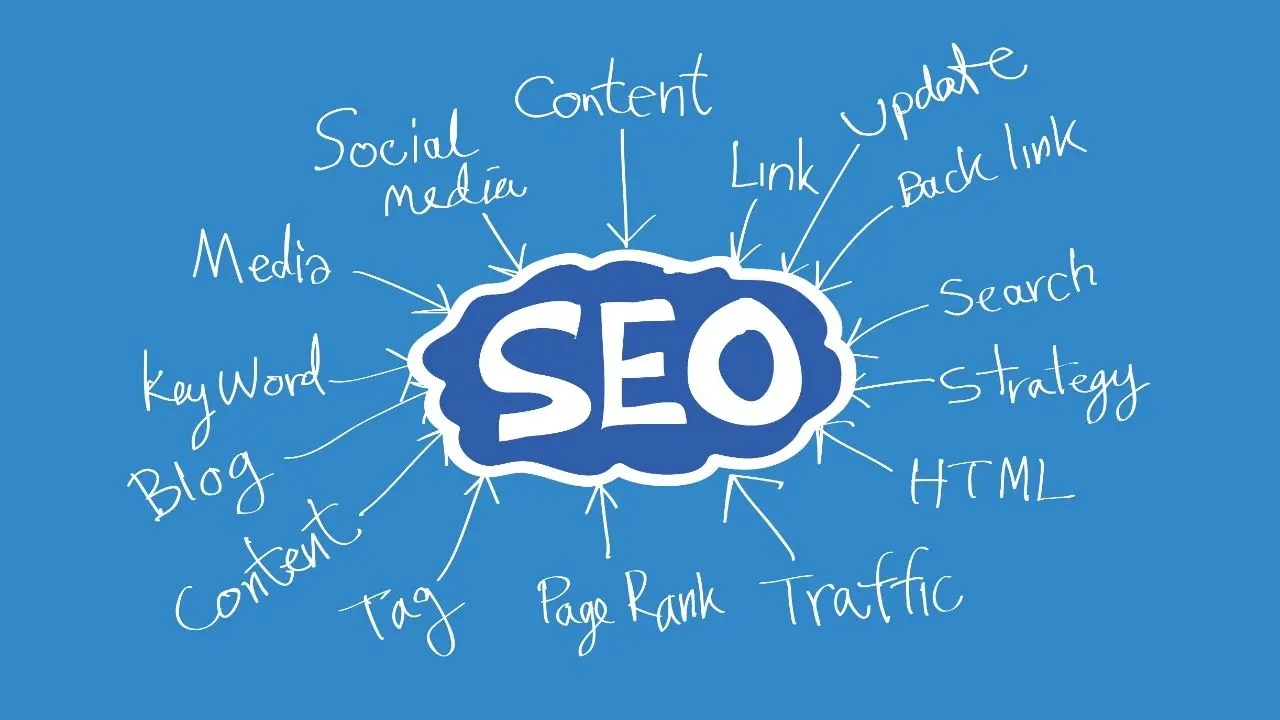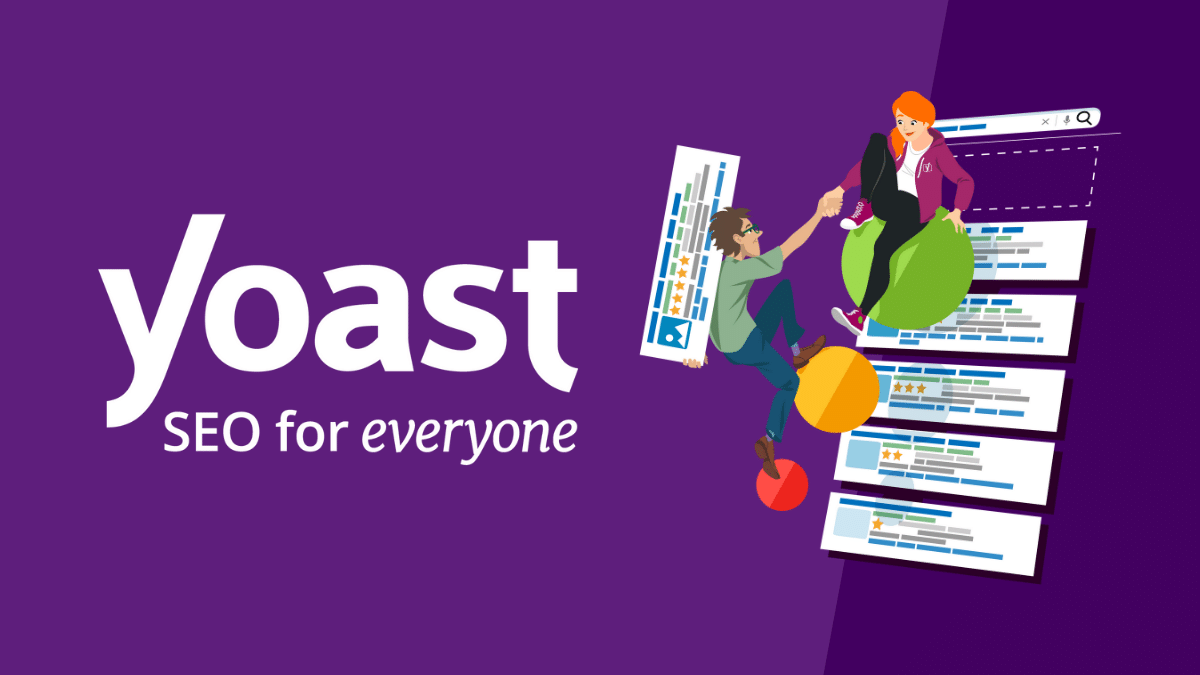No products in the cart.

SEO, or Search Engine Optimization, improves website visibility in search engine results. It drives organic traffic and increases online presence.
SEO is a crucial digital marketing strategy. It involves optimizing content, keywords, and website structure. High-quality content attracts more visitors and boosts search engine rankings. Keyword research identifies terms users search for, enhancing relevance. Technical SEO ensures the website is crawlable and fast.
Link building enhances credibility through external backlinks. Mobile optimization ensures a seamless experience on all devices. Regularly updating content keeps the website fresh and relevant. Analytics track performance, guiding adjustments. Effective SEO strategies lead to higher visibility, increased traffic, and potential conversions. Adopting best practices in SEO can significantly impact online success.

Credit: www.seo-usa.org
What Is Seo?
Search Engine Optimization, or SEO, is a crucial component of digital marketing that helps websites rank higher on search engines like Google, Bing, and Yahoo. By optimizing your website for search engines, you improve its visibility, attract more organic traffic, and ultimately drive business growth. But what exactly is SEO?
Basic Concepts
SEO involves various strategies and techniques aimed at improving a website’s ranking on search engine results pages (SERPs). Understanding the basic concepts of SEO is essential for anyone looking to enhance their online presence. Here are some core elements:
- Keywords: Words and phrases that people type into search engines to find information. Effective keyword research helps identify terms that can drive traffic to your site.
- On-Page SEO: Optimizing individual web pages to rank higher. This includes using proper meta tags, headers, and content structure.
- Off-Page SEO: Activities done outside your website to improve its ranking. This often involves backlink building and social media marketing.
- Technical SEO: Enhancing the backend structure of your website, such as improving site speed, mobile-friendliness, and crawlability.
Here’s a quick breakdown of the SEO components:
| Component | Description |
|---|---|
| Keywords | Target phrases for search queries |
| On-Page SEO | Optimizing web content and HTML |
| Off-Page SEO | Building backlinks and social signals |
| Technical SEO | Improving technical aspects of the site |
Importance In Marketing
SEO plays a vital role in digital marketing. It helps businesses reach their target audience without spending on ads. Here are some reasons why SEO is important in marketing:
- Increased Visibility: Higher rankings mean more visibility. Users are more likely to click on top results.
- Cost-Effective: Unlike paid advertising, organic traffic is free. Investing in SEO provides long-term benefits.
- Credibility and Trust: Websites that rank higher are often seen as more credible. Users trust search engines to deliver reliable results.
- User Experience: Good SEO practices improve user experience. Faster loading times and mobile-friendly designs keep visitors engaged.
- Competitive Advantage: Strong SEO can give you an edge over competitors. Appearing in top results can attract more customers.
Here’s a summary of the importance of SEO in marketing:
| Benefit | Description |
|---|---|
| Increased Visibility | Higher search engine rankings |
| Cost-Effective | Free organic traffic |
| Credibility | Trusted by users |
| User Experience | Better site performance |
| Competitive Advantage | Outperform rivals |

Credit: verticalresponse.com
Key Components
Search Engine Optimization, or SEO, is crucial for improving website visibility. The key components of SEO include on-page SEO, off-page SEO, and technical SEO. Understanding these elements helps boost your website’s ranking on search engines.
On-page Seo
On-page SEO refers to optimizing individual web pages to rank higher. It involves both the content and HTML source code of a page. Here are some essential aspects of on-page SEO:
- Keywords: Use relevant keywords throughout your content.
- Meta Descriptions: Write compelling meta descriptions to improve click-through rates.
- Headings: Use H1, H2, H3 tags properly for better structure.
- Internal Links: Link to other pages on your site to keep users engaged.
- Image Alt Text: Use descriptive alt text for images to improve accessibility and SEO.
- Content Quality: Ensure your content is unique, valuable, and informative.
On-page SEO helps search engines understand your site content. It also improves user experience, which can lead to higher engagement and conversions.
Off-page Seo
Off-page SEO focuses on activities outside your website to improve its ranking. These activities help build your site’s authority and reputation. Key off-page SEO techniques include:
- Backlinks: Earn high-quality backlinks from reputable sites.
- Social Media Marketing: Use social media platforms to promote your content.
- Guest Blogging: Write guest posts on popular blogs to gain exposure.
- Influencer Outreach: Collaborate with influencers to spread the word about your site.
- Content Marketing: Share valuable content to attract and engage your audience.
Off-page SEO boosts your site’s credibility and drives more traffic. It helps search engines see your site as trustworthy and relevant.
Technical Seo
Technical SEO focuses on improving the technical aspects of your website to enhance its performance. Here are some key elements of technical SEO:
- Site Speed: Ensure your site loads quickly.
- Mobile-Friendliness: Optimize your site for mobile devices.
- XML Sitemaps: Create and submit an XML sitemap to search engines.
- Robots.txt: Use a robots.txt file to control search engine crawling.
- HTTPS: Secure your site with HTTPS to protect user data.
- Structured Data: Use schema markup to help search engines understand your content.
Technical SEO helps search engines crawl and index your site efficiently. It also improves user experience, leading to higher engagement and better rankings.
Keyword Research
Keyword research is a fundamental part of SEO. It helps you understand what your audience is searching for. By uncovering the right keywords, you can create content that ranks higher in search engines. This process involves identifying popular words and phrases that people enter into search engines. Let’s dive into how you can effectively conduct keyword research.
Finding Keywords
Finding keywords involves understanding your audience’s search behavior. Start by brainstorming potential keywords related to your business. Create a list of terms that your audience might use. Here are some steps to get started:
- Think about the products or services you offer.
- Consider the problems your audience faces.
- List out the questions your customers frequently ask.
Next, expand your list by using related search terms. For instance, if you offer “SEO services,” related searches could include “SEO tips,” “SEO tools,” or “SEO best practices.”
Another way to find keywords is by analyzing your competitors. Look at the keywords they rank for. This can give you ideas on what terms you might be missing.
| Keyword | Search Volume | Competition |
|---|---|---|
| SEO services | 10,000 | High |
| SEO tips | 8,000 | Medium |
| SEO tools | 5,000 | Low |
Finding keywords is an ongoing process. Always keep your list updated with new terms and trends.
Tools For Research
Several tools for research can simplify the keyword research process. These tools provide valuable data on search volume, competition, and related keywords.
Google Keyword Planner is a free tool that helps you find new keywords. It provides data on search volumes and competition levels. Use it to discover long-tail keywords and optimize your content.
SEMrush is a powerful tool for keyword research. It offers insights into your competitors’ keywords. You can also track your keyword rankings and analyze backlinks.
Ahrefs is another excellent tool for research. It provides detailed keyword analysis and shows you the top-ranking pages for any keyword. Use it to uncover content gaps and opportunities.
Here’s a quick comparison of these tools:
| Tool | Features | Price |
|---|---|---|
| Google Keyword Planner | Search Volume, Competition Data | Free |
| SEMrush | Competitor Analysis, Keyword Tracking | Paid |
| Ahrefs | Keyword Analysis, Content Gaps | Paid |
Using these tools for research can help you find the right keywords and create content that resonates with your audience. Combine insights from multiple tools to get a comprehensive view of your keyword landscape.
Content Strategy
Search Engine Optimization (SEO) is essential for driving traffic to your website. A robust content strategy ensures that your website ranks higher on search engines. This blog post delves into the significance of creating quality content and understanding various content types to enhance your SEO efforts.
Creating Quality Content
Creating quality content is the backbone of any effective content strategy. High-quality content engages users, provides value, and encourages them to stay on your site longer. Here are some tips to create top-notch content:
- Understand Your Audience: Know who your readers are and what they seek.
- Focus on Readability: Use short sentences and simple words. Aim for a 9-year-old’s reading level.
- Use Keywords Naturally: Integrate keywords without overstuffing.
- Provide Value: Answer questions, solve problems, and offer insights.
In addition, structure your content properly. Use headings, subheadings, and bullet points to break up text. This makes it easier to read and understand. Here’s a table to help you structure your content:
| Element | Purpose |
|---|---|
| Headings | Organize content, improve readability |
| Subheadings | Break up sections, make content skimmable |
| Bullet Points | Highlight key points, enhance understanding |
| Paragraphs | Divide text, improve flow |
Content Types
Knowing the different content types can elevate your content strategy. Each type serves a unique purpose and can engage different segments of your audience.
Here are some popular content types:
- Blog Posts: Informative articles on various topics. Great for SEO and driving organic traffic.
- Videos: Engaging and easy to consume. Perfect for visual learners.
- Infographics: Visual representation of information. Ideal for sharing on social media.
- Case Studies: In-depth analysis of specific instances. Showcases expertise and builds trust.
- Podcasts: Audio content for users on the go. Enhances brand personality.
Here’s a quick comparison of different content types and their benefits:
| Content Type | Benefit |
|---|---|
| Blog Posts | Boost SEO, drive traffic |
| Videos | Engage visually, easy to digest |
| Infographics | Shareable, visually appealing |
| Case Studies | Build trust, showcase expertise |
| Podcasts | Enhance brand personality, accessible on the go |
Utilizing various content types ensures your content strategy is diverse and engaging, appealing to different user preferences.
Link Building
SEO plays a crucial role in determining the visibility and ranking of your website on search engines. One of the most effective strategies in SEO is link building. Link building involves acquiring hyperlinks from other websites to your own. These links serve as votes of confidence, signaling to search engines that your site is trustworthy and authoritative.
Importance Of Backlinks
Backlinks are essential for SEO because they help search engines understand the relevance and credibility of your content. Here are a few reasons why backlinks are important:
- Improved Search Rankings: Websites with more high-quality backlinks tend to rank higher on search engine results pages (SERPs).
- Increased Organic Traffic: Higher rankings lead to more visibility, which can drive more organic traffic to your site.
- Enhanced Domain Authority: Backlinks from reputable sites can boost your domain authority, making your site more trustworthy in the eyes of search engines.
Let’s break down the value of backlinks further:
| Benefit | Description |
|---|---|
| SEO Ranking | Search engines use backlinks as a ranking factor. More quality backlinks can lead to higher rankings. |
| Referral Traffic | Backlinks can bring direct traffic from the referring site, increasing your audience. |
| Brand Authority | Being linked by authoritative sites boosts your brand’s credibility and trustworthiness. |
Strategies To Acquire Links
Acquiring quality backlinks requires strategic efforts. Here are some effective strategies to acquire links:
- Guest Blogging: Write articles for other websites in your niche. Include a link back to your site in the author bio or content.
- Content Creation: Create high-quality, valuable content that others want to link to. This can include blog posts, infographics, and videos.
- Outreach: Reach out to bloggers, journalists, and influencers in your industry. Share your content with them and ask for a backlink.
- Broken Link Building: Find broken links on other websites. Suggest your content as a replacement, providing value to the site owner.
Here’s a quick overview of these strategies:
| Strategy | Details |
|---|---|
| Guest Blogging | Contribute to other blogs with a link back to your site. |
| Content Creation | Develop engaging content that attracts natural backlinks. |
| Outreach | Connect with industry influencers to share your content. |
| Broken Link Building | Identify and replace broken links with your content. |
Implementing these strategies to acquire links can significantly enhance your site’s SEO, driving more traffic and improving your search engine rankings.
Seo Tools
SEO Tools are essential for optimizing your website to rank higher in search engine results. These tools help you analyze, monitor, and improve your site’s performance. By using SEO Tools, you can identify strengths and weaknesses in your SEO strategy. This ensures your site reaches its full potential.
Popular Tools
There are several popular SEO Tools available that can help you optimize your website. Each tool offers unique features and benefits. Some of the most widely used SEO Tools include:
- Google Analytics: Tracks website traffic and user behavior.
- Google Search Console: Monitors site performance and indexing status.
- Ahrefs: Provides backlink analysis and keyword research.
- SEMrush: Offers comprehensive site audits and competitor analysis.
- Moz Pro: Delivers keyword tracking and on-page optimization.
These tools help you identify areas for improvement and track your progress. Using popular SEO tools ensures you stay ahead of your competition. The table below highlights the core features of each tool:
| Tool | Core Features |
|---|---|
| Google Analytics | Traffic tracking, user behavior analysis |
| Google Search Console | Site performance monitoring, indexing status |
| Ahrefs | Backlink analysis, keyword research |
| SEMrush | Site audits, competitor analysis |
| Moz Pro | Keyword tracking, on-page optimization |
Benefits Of Using Tools
Using SEO Tools offers numerous benefits for your website. These tools provide valuable insights and streamline your SEO efforts. Some key benefits of using SEO tools include:
- Improved Efficiency: Automate repetitive tasks and save time.
- Data-Driven Decisions: Access accurate data to guide your SEO strategy.
- Performance Monitoring: Track your site’s performance and identify issues.
- Competitor Analysis: Understand your competitors’ strategies and find opportunities.
- Keyword Optimization: Discover high-performing keywords for better ranking.
By leveraging the benefits of using SEO tools, you can enhance your website’s visibility and drive more traffic. These tools help you stay informed about the latest trends and best practices. This ensures your SEO strategy remains effective and up-to-date. Implementing these tools will boost your site’s performance and help you achieve your SEO goals.
Measuring Success
Understanding SEO is crucial for any online business. But how do you know if your strategies are working? This is where measuring success comes into play. Tracking the right metrics and analyzing data helps you gauge the effectiveness of your SEO efforts. Let’s explore the key metrics and how to analyze data for SEO success.
Key Metrics
To measure SEO success, you need to track specific key metrics. These metrics help you understand your website’s performance and pinpoint areas for improvement. Here are some essential SEO key metrics:
- Organic Traffic: The number of visitors who find your site through search engines.
- Keyword Rankings: The positions your site holds in search engine results for specific keywords.
- Click-Through Rate (CTR): The percentage of users who click on your link after seeing it in search results.
- Bounce Rate: The percentage of visitors who leave your site after viewing only one page.
- Backlinks: The number of external links pointing to your site. High-quality backlinks improve your site’s authority.
- Conversion Rate: The percentage of visitors who complete a desired action, such as making a purchase or filling out a form.
Tracking these metrics over time helps you identify trends and measure the impact of your SEO strategies. Here is a simple table to summarize these key metrics:
| Metric | Definition |
|---|---|
| Organic Traffic | Number of visitors from search engines |
| Keyword Rankings | Positions in search results |
| CTR | Percentage of users who click your link |
| Bounce Rate | Percentage of single-page visits |
| Backlinks | External links to your site |
| Conversion Rate | Percentage of visitors completing desired actions |
Analyzing Data
Once you’ve gathered the data, the next step is analyzing data. This helps you understand what the numbers mean and how to improve your SEO efforts. Here are some steps to follow:
- Compare Periods: Look at data from different time periods to spot trends. For example, compare last month’s organic traffic to this month’s.
- Identify Patterns: Look for patterns in your data. If your bounce rate is high, it might indicate that visitors are not finding what they need.
- Use Tools: Tools like Google Analytics and SEMrush can help you analyze data more effectively. These tools provide insights into traffic sources, user behavior, and more.
- Set Benchmarks: Establish benchmarks to measure your progress. For example, aim to increase your organic traffic by 20% over six months.
- Adjust Strategies: Based on your analysis, adjust your SEO strategies. If a particular keyword is performing well, create more content around that keyword.
Analyzing data helps you understand what’s working and what’s not. By focusing on key metrics and regularly reviewing your data, you can continually improve your SEO efforts and achieve better results.
Future Trends
SEO is always evolving, and keeping up with the latest trends is crucial. The future trends in SEO will shape how we optimize websites and content for search engines. Let’s explore some exciting aspects like voice search and AI in SEO.
Voice Search
Voice search is changing how people find information online. With devices like Siri, Alexa, and Google Assistant, more people use their voices to search. This trend impacts SEO strategies significantly.
Here are some key points:
- Longer, conversational keywords: People speak differently than they type. Optimize for natural language.
- Question-based queries: Voice searches often start with questions. Use question phrases in your content.
- Local SEO: Many voice searches are local. Ensure your business is optimized for local search.
Consider this table for optimization tips:
| Factor | Optimization Tip |
|---|---|
| Keyword Length | Use long-tail keywords |
| Content Format | Include FAQs |
| Local SEO | Update Google My Business |
Voice search is a crucial part of SEO future trends. Adapting to it can boost your website’s visibility.
Ai In Seo
AI in SEO is transforming how we approach optimization. Artificial intelligence tools can analyze data, predict trends, and automate tasks. This makes SEO more efficient and effective.
Some significant impacts of AI include:
- Content Creation: AI tools can generate content ideas and even write articles.
- Data Analysis: AI can analyze user behavior and suggest improvements.
- Automation: Tasks like keyword research and reporting can be automated.
Look at this table for AI tools in SEO:
| Tool | Function |
|---|---|
| ClearScope | Content optimization |
| Surfer SEO | Keyword research |
| SEMrush | Competitive analysis |
Integrating AI in SEO strategies can give businesses a competitive edge. This is a key aspect of SEO future trends.
Nz Depot Seo Services Got You Covered
Search Engine Optimization (SEO) is a game-changer for businesses aiming to enhance their online presence. With NZ DEPOT SEO Services, your website can achieve higher rankings, increased traffic, and better conversion rates. NZ DEPOT SEO Services Got you Covered with expert solutions tailored to meet your unique needs.
Explore Nz Depot’s Top-quality Seo Services In New Zealand
When it comes to top-notch SEO services in New Zealand, NZ DEPOT stands out. They offer a comprehensive range of SEO solutions designed to boost your online visibility and drive organic traffic to your site. Here’s what you can expect from their SEO services:
- Keyword Research: Identifying the best keywords that your target audience is searching for.
- On-Page SEO: Optimizing individual pages on your website to rank higher and earn more relevant traffic.
- Off-Page SEO: Building backlinks and improving your site’s authority.
- Technical SEO: Ensuring your website is crawlable and indexable by search engines.
- Local SEO: Enhancing your visibility in local search results.
NZ DEPOT’s SEO consultants are experts in search engine optimisation seo. They use advanced tools like Surfer SEO, SEMrush, and YoastSEO to ensure your site is optimized for maximum performance.
Check out the table below for a quick overview of their SEO services:
| Service | Description |
|---|---|
| Keyword Research | Finding the most relevant keywords for your business. |
| On-Page SEO | Optimizing your site’s content and structure. |
| Off-Page SEO | Building high-quality backlinks. |
| Technical SEO | Improving site speed and crawlability. |
| Local SEO | Optimizing for local search queries. |
NZ DEPOT also offers SEO services for various platforms such as Shopify SEO and WordPress SEO. Their SEO experts ensure your site is optimized for Google search ranking, enhancing your website ranking and overall site rank. Whether you need SEO for companies or are an individual looking for SEO optimization, NZ DEPOT has got you covered.
Moreover, their search engine optimization specialists provide detailed reports and analytics, helping you track your progress and make informed decisions. With NZ DEPOT, you get a search optimization service that is not only effective but also transparent and data-driven.

Credit: yoast.com
Frequently Asked Questions
What Is Seo?
SEO stands for Search Engine Optimization. It involves optimizing web content to rank higher in search engines.
Why Is Seo Important?
SEO is crucial for visibility. Higher search rankings drive more traffic, boosting business and credibility.
How Does Seo Work?
SEO works by optimizing content for search engines. It involves keywords, backlinks, and quality content.
What Are Seo Keywords?
SEO keywords are terms people search for online. Using them helps improve content visibility in search results.
Conclusion
Mastering SEO is crucial for online success. Implement these strategies to improve your website’s visibility and traffic. Stay updated with the latest trends and algorithms. Consistent effort will yield significant results. Embrace SEO practices and watch your online presence grow.
Remember, quality content and user experience are key to SEO success.
Get your SEO covered from us today!
-
$250.00 – $2,500.00Price range: $250.00 through $2,500.00$125.00 – $1,230.00Price range: $125.00 through $1,230.00 Incl GSTComprehensive SEO Backlink Packages
$250.00 – $2,500.00Price range: $250.00 through $2,500.00$125.00 – $1,230.00Price range: $125.00 through $1,230.00 Incl GST -
$1,000.00 – $4,500.00Price range: $1,000.00 through $4,500.00$495.00 – $2,220.00Price range: $495.00 through $2,220.00 Incl GSTUltimate SEO Package for Maximum Online Visibility
$1,000.00 – $4,500.00Price range: $1,000.00 through $4,500.00$495.00 – $2,220.00Price range: $495.00 through $2,220.00 Incl GST


